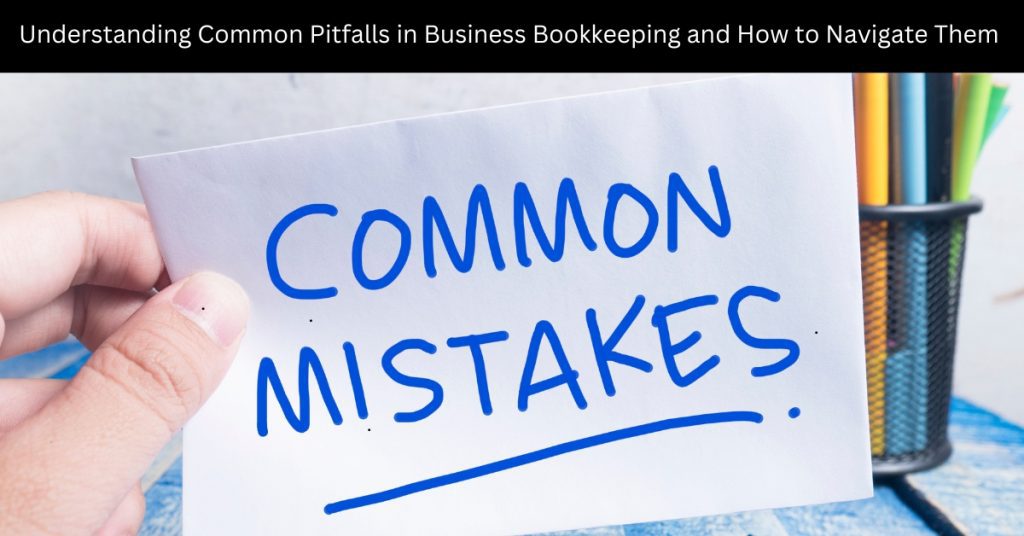Blockchain is transforming the accounting landscape in Dubai by introducing secure, transparent, and automated solutions for audits, VAT compliance, asset tracking, and financial reporting.
As Dubai positions itself as a leader in fintech innovation, accounting firms are adopting blockchain to enhance data integrity, client trust, and operational efficiency.
With support from evolving DFSA regulations and increasing demand for cryptocurrency accounting software, blockchain is no longer optional—it’s essential for the future of accounting in the UAE.
Key Takeaways!
| Topic | Key Insight |
|---|---|
| Blockchain in Accounting | Offers transparency, immutability, and real-time data access. |
| VAT Compliance | Smart contracts automate VAT calculations and filings in Dubai. |
| Audit Efficiency | Blockchain enables real-time, tamper-proof auditing processes. |
| Security & Fraud Prevention | Cryptography and decentralization reduce fraud risk significantly. |
| Regulatory Landscape | DFSA is evolving to support blockchain adoption in financial reporting. |
| Crypto Accounting Tools | New software solutions streamline crypto asset management and reporting. |
| Challenges | High costs, tech integration, and regulation gaps remain key barriers. |
| Dubai’s Leadership | Dubai’s strategic vision and tech-first culture drive blockchain adoption. |
Understanding Blockchain Technology in Accounting
Blockchain is a decentralized and tamper-proof digital ledger that records transactions across a network of computers. Unlike traditional accounting systems that rely on centralized databases, blockchain ensures every transaction is:
-
Immutable – Once recorded, it cannot be altered or deleted.
-
Transparent – All authorized parties have access to the same version of the truth.
-
Secure – Protected by cryptographic techniques.
In the UAE, where compliance and accuracy are vital, this shift holds immense promise. DFSA blockchain accounting rules are gradually evolving to accommodate this digital transformation, creating a supportive regulatory environment for innovation.

Benefits of Blockchain for Accounting Firms in Dubai
1. Enhanced Transparency and Trust
Blockchain offers real-time access to a shared ledger, providing clear audit trails for all stakeholders. This is especially valuable in:
-
Multi-party transactions
-
Complex supply chains
-
Client account transparency
2. Improved Data Security
With its decentralized and cryptographic nature, blockchain protects financial data in ways traditional systems cannot:
-
Fraud and tampering are significantly reduced.
-
Cryptographic validation prevents unauthorized access.
-
Blockchain introduces a third immutable entry, deterring double-entry fraud.
3. Increased Operational Efficiency
By automating tedious manual tasks and reconciliation processes, blockchain empowers accounting teams to focus on high-value work. For instance:
-
Smart contracts for VAT Dubai can streamline VAT calculations, invoicing, and tax filing.
-
Reduces reliance on third-party verification and reconciliations.
-
Speeds up financial close cycles and internal audits.
Table: Traditional vs Blockchain Accounting Systems in Dubai
| Feature | Traditional Accounting | Blockchain Accounting UAE |
|---|---|---|
| Data Storage | Centralized database | Decentralized ledger |
| Audit Trail | Manual logs, error-prone | Automatic, tamper-proof |
| Fraud Risk | High due to data manipulation | Low due to immutability |
| Reconciliation | Manual and time-consuming | Automated via smart contracts |
| Compliance (e.g., VAT) | Prone to human error | Enforced via smart contracts for VAT |
| Data Accessibility | Restricted and siloed | Real-time access for authorized users |
| Security | Vulnerable to breaches | Secured through cryptographic protocols |

Real-World Applications in Dubai’s Accounting Industry
1. Blockchain in Auditing and Assurance
Blockchain is transforming the audit process by enabling:
-
Real-time transaction verification.
-
Reduced dependency on sampling.
-
Greater reliability and speed.
Dubai blockchain audit firms are leveraging this capability to offer more robust and efficient services to their clients.
2. VAT and Tax Compliance Using Smart Contracts
The UAE’s VAT regulations require strict adherence and accurate recordkeeping. Blockchain facilitates:
-
Smart contracts that automatically calculate and file VAT.
-
Real-time data synchronization with the Federal Tax Authority (FTA).
-
Reduced risk of late or inaccurate tax filings.
This innovation makes smart contracts for VAT Dubai a key use case for automation and compliance.
3. Asset Tracking and Regulatory Reporting
For top accounting firms in Dubai, blockchain offers:
-
Precise tracking of financial assets across various entities.
-
Instant reporting aligned with DFSA blockchain accounting rules.
-
Simplified compliance for multi-jurisdictional clients.
By automating regulatory submissions, firms can reduce costs and boost accuracy.
Blockchain Accounting Tools and Cryptocurrency Integration
The rise of cryptocurrency accounting software in Dubai reflects the growing need for specialized tools that can:
-
Integrate with blockchain networks like Ethereum or Hyperledger.
-
Track crypto transactions in real-time.
-
Support dual reporting in fiat and crypto currencies.
Popular platforms used in the UAE include:
-
Lukka – Institutional-grade crypto accounting software.
-
Gilded – Integrates with QuickBooks and handles blockchain invoicing.
-
Koinly – Tax reporting for individual and enterprise crypto users.
These tools help blockchain accounting UAE professionals handle complex portfolios with ease and meet DFSA compliance requirements.

Challenges in Adopting Blockchain in Accounting
1. Implementation Barriers
Despite the benefits, accounting firms in Dubai face several challenges:
-
High Setup Costs – Building blockchain infrastructure is capital-intensive.
-
Skills Gap – A shortage of blockchain-literate accountants.
-
Integration Issues – Legacy systems may not align with blockchain tools.
2. Regulatory Uncertainty
Though progressive, Dubai’s legal framework is still evolving. Key concerns include:
-
Data privacy and cross-border data flow.
-
Lack of standardization in DFSA blockchain accounting rules.
-
Risk classification of digital assets under UAE financial laws.
Firms must stay updated with policy shifts to ensure compliant blockchain adoption.
Why Dubai is Leading in Blockchain Accounting
Dubai’s leadership in blockchain adoption is no accident. Supported by government initiatives like the Dubai Blockchain Strategy, the city is pushing industries—including accounting—to go digital. Key drivers include:
-
Pro-innovation regulators such as DFSA and DMCC.
-
Tech-forward clients demanding modern accounting practices.
-
Top accounting firms in Dubai investing in pilots and proprietary blockchain solutions.
As early adopters, these firms gain a competitive edge through automation, transparency, and trust—all essential elements in a post-digital economy.

The Road Ahead: Strategic Imperative for Accountants
Blockchain isn’t just a passing trend—it’s reshaping the very foundations of accounting. For chartered accountant firms in Dubai, the roadmap is clear:
-
Invest in blockchain training and internal upskilling.
-
Partner with tech providers to build tailored blockchain tools.
-
Advocate for clearer regulations to support long-term adoption.
Firms that act now will emerge as market leaders, offering unmatched value in transparency, compliance, and financial accuracy.
Conclusion: Trust, Transformation, and the Future
Blockchain is more than a technological disruption—it’s a trust-building mechanism that aligns with the evolving needs of clients and regulators in Dubai. From smart contracts for VAT Dubai to enhanced auditing standards, the use cases are real and expanding.
As Dubai blockchain audit firms and top accounting firms in Dubai continue to pioneer adoption, blockchain is no longer optional—it’s a strategic imperative. The future of accounting lies in automation, accuracy, and assurance—all of which blockchain delivers.
For firms ready to embrace blockchain accounting UAE, the path forward is filled with opportunity. By staying ahead of DFSA blockchain accounting rules, investing in talent, and integrating cryptocurrency accounting software, Dubai’s accounting sector is poised to set a global standard.
FAQs
1. How is blockchain used in accounting firms in Dubai?
Blockchain allows accounting firms in Dubai to record transactions in a secure, tamper-proof ledger. It improves audit accuracy, automates tax compliance, and enhances transparency in financial reporting.
2. What are smart contracts for VAT in Dubai?
Smart contracts automatically calculate and submit VAT payments based on predefined rules. In Dubai, this helps businesses stay compliant with FTA regulations while reducing human errors and delays.
3. Are blockchain audit services available in Dubai?
Yes, several Dubai-based firms now offer blockchain-based audit services. These services reduce reliance on manual sampling and provide real-time validation of financial records using blockchain technology.
4. Is cryptocurrency accounting legal and supported in the UAE?
Yes, cryptocurrency accounting is legal in the UAE, though regulated by evolving DFSA frameworks. Specialized crypto accounting software is used to manage, track, and report digital assets for both individuals and businesses.



